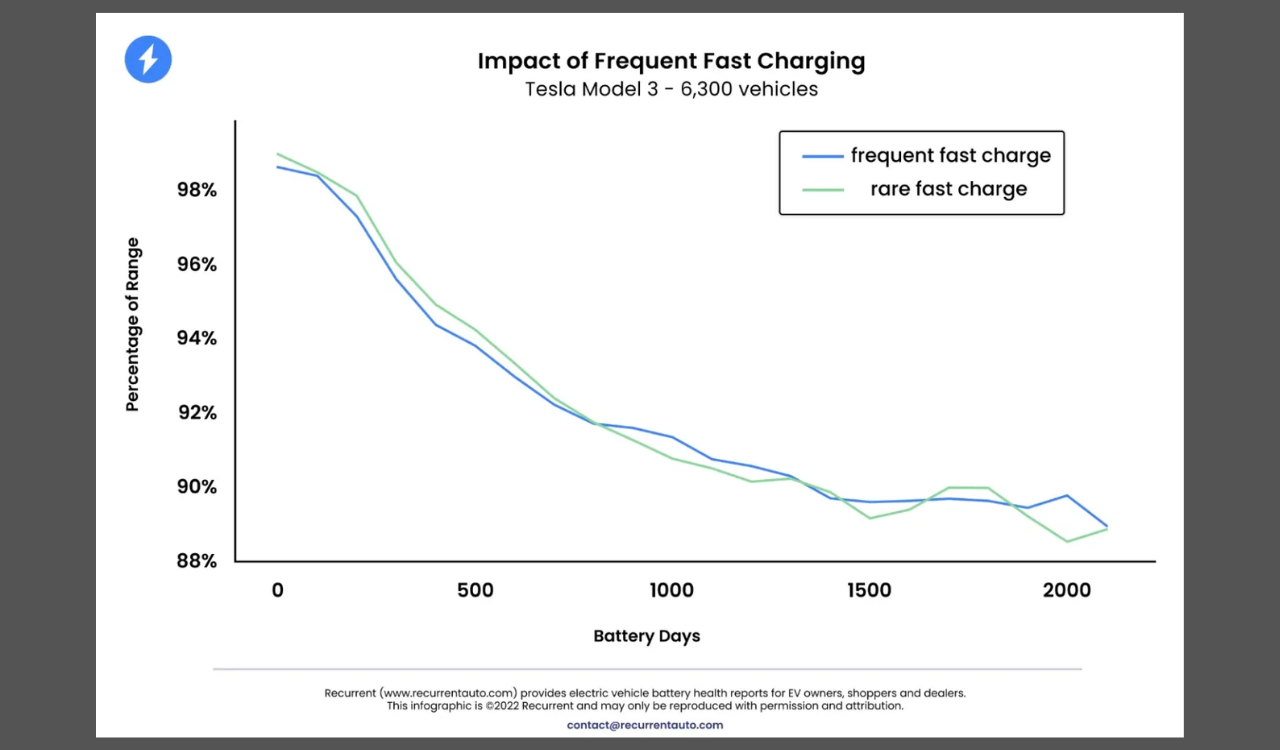As per the new study, it has come to notice that Tesla battery degradation is not hampered by frequent Supercharging. Since it was a sort of myth earlier.
It has been believed for a very long time in the industry that frequent DC charging is bad for battery life. It is to be noted, that even Tesla used to warn against it.
However, there would be no factual data that validate the assumption when it comes to Tesla vehicles. We have relatively more data with respect to any other electric vehicles. In one of its latest updates about battery degradation, Tesla mentioned that its vehicles lose only about 12% after 200,000 miles.
In addition to this, a new report from Recurrrent. Since same has access to data from over 12,500 Tesla vehicles in the US alone via its software service. It reveals that there’s little or no difference in battery degradation between frequent fast charging and rare fast charging.

The data depict the same result for Model 3. While the frequent fast charging actually makes long-term battery degradation a bit better on Model Y.
Recurrent tend to have their focus on the extreme cases. Below is an explanation of how they qualified the vehicles that frequently fast charge with respect to those that rarely fast charge.
We compared cars that fast charge at least 90% of the time to cars that fast charge less than 10% of the time. In other words, people who almost exclusively fast charge their car and people who very rarely fast charge. The results show no statistically significant difference in range degradation between Teslas that fast charge more than 90% of the time and those that fast charge less than 10% of the time.
Whereas, in Tesla’s owner manual, the automaker doesn’t mention frequent DC fast charging and its effects on battery longevity anymore. Although it does mention the potential to “decrease slightly” the peak charging rate:
The peak charging rate of the Battery may decrease slightly after a large number of DC Fast Charging sessions, such as those at Superchargers. To ensure maximum driving range and Battery safety, the Battery charge rate is decreased when the Battery is too cold, when the Battery’s charge is nearly full, and when the Battery conditions change with usage and age. These changes in the condition of the Battery are driven by battery physics and may increase the total Supercharging duration by a few minutes over time.
At the same time, they also warned about fast charging under extreme heat or extreme cold conditions, which is not ideal for battery performance. Moreover, extreme heat and cold even also not good for internal combustion engine vehicles.